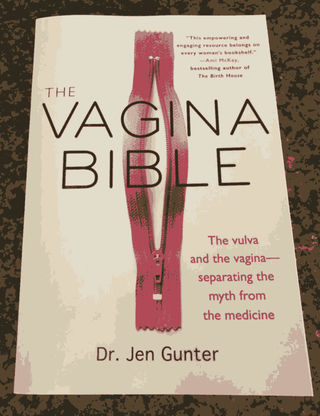Post-Traumatic Stress Disorder
The Vagina Bible Empowers Women with Accurate Information
It might also help those who have experienced sexual trauma.
Posted May 14, 2020 Reviewed by Devon Frye
As a clinical psychologist who provides evidence-based treatment for people who experience simultaneous addictive and psychiatric disorders, including post-traumatic stress disorder (PTSD), I regularly provide therapy to women who have endured horrific sexual abuse histories.
In an oversimplified nutshell, evidence-based treatment for PTSD involves planful and safe exposure to past trauma so that the intensity of PTSD symptoms becomes dampened. In doing so, a person can come to understand what happened to them in a different light and their quality of life can be meaningfully improved.
One component of therapy involves psychoeducation about how trauma can negatively affect a person biologically, psychologically, and socially.
For those who have experienced sexual abuse and trauma, it can be very normal to feel a multitude of overwhelming and confusing emotions, as well as a sense of disconnection from one’s body.
Sometimes, mental health professionals will recommend books to be read alongside therapy to help enhance a person’s understanding of therapy and medical topics more generally.

One recommendation that I’ve made several times for women is to read The Vagina Bible: The Vulva and the Vagina—Separating the Myth from the Medicine, by Dr. Jen Gunter, a well-respected obstetrician and gynecologist.
While The Vagina Bible is not specifically about sexual abuse or PTSD per se, it covers numerous topics that can arise during the course of therapy. For example: anatomy; female sexual pleasure and sex education; pregnancy, childbirth, and contraception; menstrual products, myths, and misinformation; medications and interventions; sexually transmitted infections and other medical conditions; sexual and vulvar pain; and pseudoscientific health practices.
More generally, the theme of the book is one of female empowerment, which can sometimes feel lost when experiencing PTSD in a sea of shame, guilt, sadness, anger, confusion, and other uncomfortable emotions.
The Vagina Bible aims to empower women by providing them with accurate information about their bodies, providing a language that dispels myths and misinformation, and ultimately, helps women to connect with themselves. This theme of empowerment is consistent with what occurs during evidence-based treatment for PTSD: re-connection with oneself, the construction of a healthy narrative, and the strengthening of a person’s self-efficacy—that is, their confidence in their ability to cope with PTSD symptoms.
In my clinical experience, patients have found The Vagina Bible to be an enlightening and helpful supplemental backdrop to therapy. I need to strongly stress that the book is by no means a substitute for evidence-based treatment for PTSD. If you think you might have addiction or mental health concerns, then it is extremely important to reach out for help from a mental health professional.


